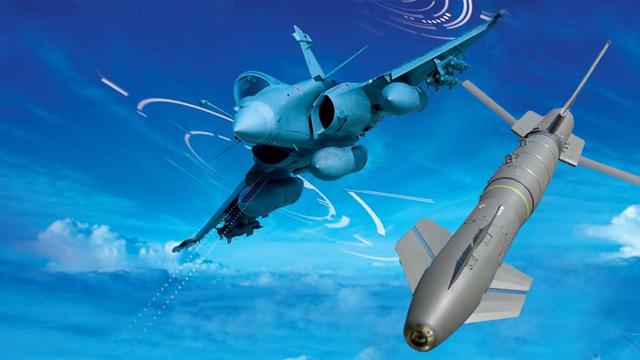By striking deep inside Pakistan under Operation Sindhoor, India has once again demonstrated that under Prime Minister Narendra Modi’s leadership, bold decisions are not just possible—they are inevitable. The targeted assaults on terror camps belonging to Jaish-e-Mohammed (JeM) and Lashkar-e-Taiba (LeT), operating with impunity under the patronage of Hafiz Saeed and Masood Azhar, caught the Pakistani establishment completely off-guard. The timing was no coincidence: less than 24 hours after an in-camera UN Security Council meeting where several countries bluntly called out Pakistan’s state-sponsored terror and nuclear blackmail, India acted with precision.
While the usual doubters within India—retired bureaucrats, ex-military talking heads, and members of the perpetually “concerned” commentariat—warned against escalation, India did what needed to be done. And once again, the so-called secular-liberal ecosystem, which thrives on defeatism and moral equivalence, found itself flat-footed.
For decades, India’s response to cross-border terrorism was muted, shackled by global opinion and strategic timidity. But the new India refuses to play by rules written in the blood of its soldiers. Operation Sindhoor is named as a tribute to the 26 widows of Indian men executed point-blank in Pahalgam—a massacre where terrorists singled out victims based on religion before pulling the trigger. That was not just terrorism; it was targeted genocide. India has chosen not to respond with candles and condemnations, but with calculated firepower.

As expected, Pakistan reacted with its usual delusions, claiming it had shot down Indian jets that were never even deployed. Preliminary reports suggest that a Chinese-origin fighter jet, allegedly operated by Pakistan Air Force personnel, may have crashed or been brought down during the chaos. The fog of war remains, but Pakistan’s panic is evident. Meanwhile, its army spokespersons continue to churn out half-baked propaganda, banking on the gullibility of a dwindling international audience. But the world isn’t buying it anymore. The “cry wolf” strategy has run its course.
Let us be clear: Pakistan is at a crossroads. It can either hand over terrorists and dismantle its jihad infrastructure, or face consequences it is unprepared for. If it dares to retaliate militarily, it only confirms its role as a terror-exporting state. India, meanwhile, is more than prepared. Future Indian operations will not just hit training camps—they may strike ISI safe houses, military assets, and yes, even nuclear facilities, if deemed necessary for national security.
The reality is that Pakistan is a collapsing state, held together by little more than China’s checkbook and an increasingly fragile army-civilian nexus. A breakup is not only possible—it’s foreseeable. The cries for independence in Balochistan, Sindh, and among Pashtuns are growing louder. India should no longer remain neutral; if Pakistan continues to provoke, India must support these voices for freedom as a strategic doctrine.
What’s notable is the silence from China and Turkey, Pakistan’s traditional allies. Beijing now understands that backing Islamabad blindly is a liability. Its Belt and Road investments through Pakistan-occupied Kashmir (PoK) were always a strategic blunder. If China wants economic cooperation, it must renegotiate with India—PoK is not negotiable.
Back home, the Congress party’s hypocrisy is on full display. While Rahul Gandhi offered a half-hearted “Jai Hind,” the party’s Rajya Sabha leader, Mallikarjun Kharge floated baseless rumours about Modi cancelling a Jammu and Kashmir trip due to fear of terror attacks. Is this the responsible Opposition a democracy needs—or just another fire cover for Pakistan’s psychological warfare?
Let’s not forget that during UPA rule, surgical strikes were merely PowerPoint slides, and “strategic restraint” meant letting terrorists walk free. Modi’s government has reversed that rot—first with the 2016 Uri surgical strikes, then the Balakot airstrikes, and now with Operation Sindhoor.
The war against terror doesn’t end with cross-border strikes. Domestic sleeper cells, radical sympathizers, and political apologists within India must be identified and neutralized. Whether embedded in academia, politics, or media, those who provide ideological cover to terrorists are as dangerous as those who pull the trigger. This includes so-called “human rights activists” who shed more tears for slain terrorists than their victims.
India must also reject the paralyzing moral lectures of Western liberal institutions. The UNSC, the UNHRC, and European think-tanks that have been blind to jihadist terror in India have forfeited credibility. National interest must now trump global opinion.
Modi’s promise was simple: India will no longer absorb blows; it will retaliate. That promise has been kept. Operation Sindhoor is not just a military strike—it is a message. A message to Pakistan that its terror-exporting enterprise has run out of time. A message to the world that India will secure its sovereignty with force if necessary. And a message to Indians that their faith in strong leadership is not misplaced.
As 140 crore Indians say with pride: Modi hai toh mumkin hai.




